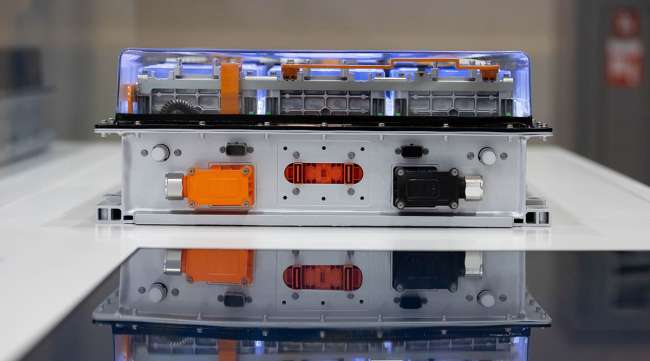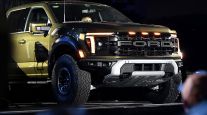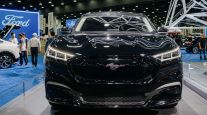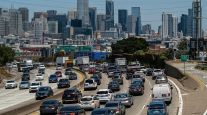Ford Is Investing $3.5 Billion in EV Battery Plant With China’s CATL

[Stay on top of transportation news: Get TTNews in your inbox.]
Ford Motor Co. is investing $3.5 billion in an electric vehicle battery plant in southwest Michigan that it will operate with technology and support from a Chinese battery maker that has stirred political controversy.
The factory near Marshall, Mich., will employ 2,500 workers, Ford said Feb. 13, confirming a Feb. 10 Bloomberg report. The facility is set to open in 2026 and will produce enough batteries to power 400,000 EVs a year.
The U.S. automaker will be contracting the battery know-how from China’s Contemporary Amperex Technology Co. Ltd (CATL), which will help set up the plant and have staff there. Ford said it will own and operate the factory and set up a wholly owned subsidiary to run it.
“Ford has control — control over the manufacturing, control over the production, control over the workforce,” Lisa Drake, Ford’s vice president of EV industrialization, said in a briefing with reporters Feb. 13. “We’re licensing that technology from CATL.”
The arrangement, aimed at securing tax benefits for the plant, has drawn criticism at a time of heightened geopolitical tension between the U.S. and China. Virginia Gov. Glenn Youngkin pulled his state from consideration as a location for the factory, calling it a “Trojan horse” for the Chinese Communist Party.

Host Seth Clevenger speaks with autonomous vehicle pioneer Don Burnette about the pros and cons of driverless cars and trucks. Hear the program above and at RoadSigns.TTNews.com.
Third of a three-part series on autonomous vehicles. Hear Part I here, and Part II here.
CATL staff will help with the installation of factory equipment to build the batteries, some of which will come from China, Drake said. And some of that personnel from CATL will remain at the Michigan factory permanently.
“It’s predominantly the Ford team that will be doing most of that work,” Drake said. “But we need their help.”
CATL, the world’s largest batterymaker, is providing the technology for lithium iron phosphate batteries, which are less expensive and will make Ford’s EV lineup more affordable, Drake said. The plant will be the first in the U.S. to produce so-called LFP batteries.
Ford will begin offering LFP batteries in its Mustang Mach-E model later this year and in its F-150 Lightning plug-in pickup truck next year. Initially, those batteries will be imported from China. Tesla Inc. and Honda Motor Co. also have contracts with CATL to import LFP batteries for their EV models.
The Michigan factory will have the annual capacity to produce 35 gigawatt hours of LFP batteries, which is enough to provide power sources for 400,000 Ford models a year, Drake said. That will represent about one-fifth of the EV output of 2 million vehicles Ford is targeting annually by late 2026. Ford is spending $50 billion to develop and build EVs through 2026.
Want more news? Listen to today's daily briefing below or go here for more info:




